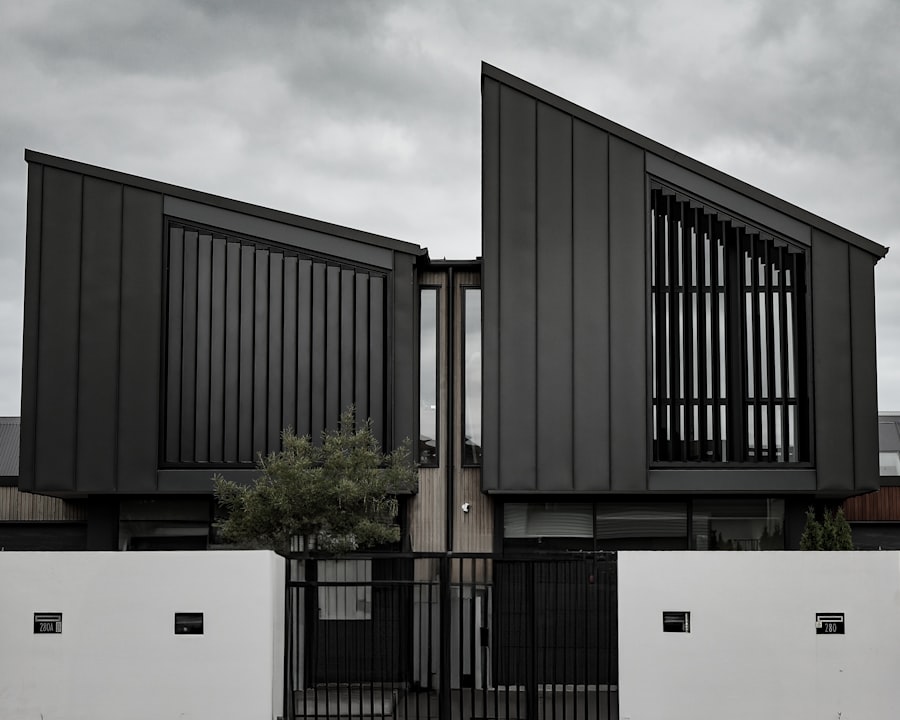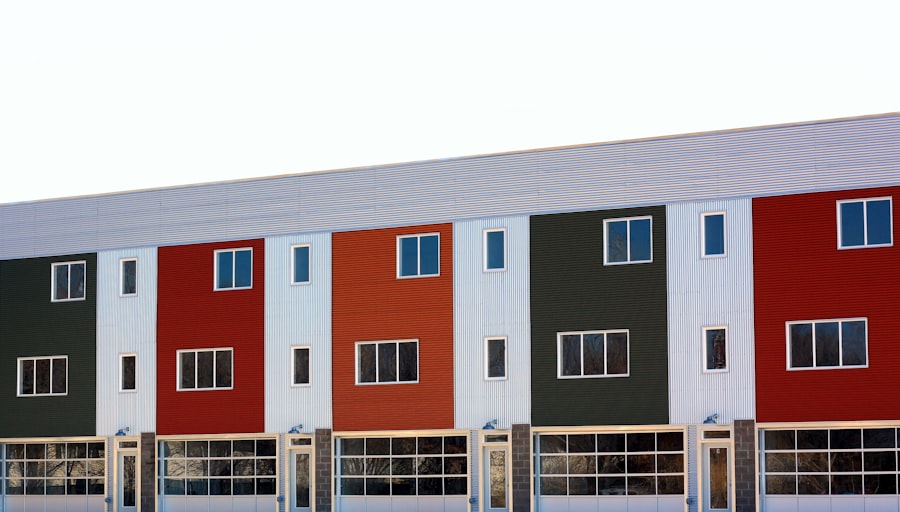Repo manufactured homes, often referred to as repos, are homes that have been repossessed by lenders due to the previous owner’s inability to keep up with mortgage payments. These homes can be an attractive option for buyers looking for affordable housing solutions. Repo manufactured homes can vary significantly in size, style, and condition, ranging from single-section units to larger multi-section models.
They are typically built in a factory setting and then transported to a designated site, which allows for quicker construction times compared to traditional homes. The process of repossession usually occurs when the homeowner defaults on their loan, leading the lender to reclaim the property. This can happen for various reasons, including financial hardship, job loss, or unexpected medical expenses.
Once repossessed, these homes are often sold at a fraction of their original price, making them appealing to budget-conscious buyers. However, potential buyers should be aware that the condition of these homes can vary widely, and thorough inspections are essential before making a purchase.
Key Takeaways
- Repo manufactured homes are pre-owned homes repossessed due to non-payment or other financial issues.
- Economic factors and increased demand have contributed to the rise of repo manufactured homes in the market.
- Buying repo manufactured homes can offer cost savings and quicker move-in times compared to new homes.
- Challenges include potential repair needs, limited warranties, and financing difficulties.
- Successful purchase involves thorough inspection, understanding financing options, and planning for possible renovations.
Factors Contributing to the Rise of Repo Manufactured Homes
Several factors have contributed to the increasing popularity of repo manufactured homes in recent years. One significant factor is the overall housing market’s volatility. Economic downturns and rising interest rates have made it challenging for many individuals and families to secure traditional home loans.
As a result, more people are turning to alternative housing options, such as repo manufactured homes, which often come with lower price tags and more flexible financing options. Additionally, the growing awareness of the benefits of manufactured housing has played a role in this trend. Many buyers are recognizing that manufactured homes can offer similar amenities and comfort as traditional homes but at a significantly lower cost.
The stigma surrounding manufactured housing has diminished over time, with many modern models featuring high-quality materials and contemporary designs. This shift in perception has made repo manufactured homes an attractive option for first-time homebuyers, retirees, and those seeking affordable housing solutions.
Advantages of Purchasing Repo Manufactured Homes

One of the primary advantages of purchasing repo manufactured homes is the potential for significant cost savings. These homes are often sold at prices well below market value, allowing buyers to acquire a property without breaking the bank. For instance, a repo manufactured home that originally sold for $100,000 might be available for as little as $50,000 or less, depending on its condition and location.
This affordability can make homeownership accessible to individuals and families who may have otherwise been priced out of the market. Another advantage is the speed at which buyers can move into a repo manufactured home. Since these homes are often already set up on a lot or in a community, the process of purchasing and moving in can be much quicker than buying a traditional home that may require extensive renovations or construction.
Additionally, many repo manufactured homes come with appliances and fixtures already included, further streamlining the transition for new homeowners. This convenience can be particularly appealing for those looking to relocate quickly or who may not have the time or resources for extensive renovations.
Challenges of Purchasing Repo Manufactured Homes
| Challenge | Description | Impact | Possible Solutions |
|---|---|---|---|
| Limited Inventory | Repo homes are often limited in number and availability varies by region. | Reduces buyer options and may delay purchase timelines. | Expand search radius and monitor listings regularly. |
| Condition and Repairs | Repo homes may have deferred maintenance or damage requiring repairs. | Increases upfront costs and complicates financing. | Conduct thorough inspections and budget for repairs. |
| Financing Difficulties | Lenders may be hesitant to finance repo manufactured homes due to condition or title issues. | Limits buyer financing options and may require cash purchases. | Seek specialized lenders or consider alternative financing. |
| Title and Legal Issues | Repossession can lead to unclear titles or liens on the home. | Complicates ownership transfer and may cause legal disputes. | Perform title searches and consult legal experts before purchase. |
| Depreciation and Resale Value | Manufactured homes generally depreciate faster than site-built homes. | Potential loss of investment value over time. | Consider location and home condition to maximize resale potential. |
| Park Restrictions | Some mobile home parks have restrictions on repo or older homes. | Limits placement options and may require park approval. | Verify park rules and obtain necessary approvals in advance. |
Despite the numerous advantages, purchasing repo manufactured homes does come with its own set of challenges. One significant concern is the condition of the home itself. Since these properties are often sold “as-is,” buyers may encounter issues that require costly repairs or renovations.
It is not uncommon for repossessed homes to have been neglected or poorly maintained by previous owners, leading to problems such as plumbing issues, electrical failures, or structural damage. Therefore, conducting a thorough inspection before finalizing any purchase is crucial to avoid unexpected expenses down the line. Another challenge is navigating the financing process for repo manufactured homes.
While there are various financing options available, securing a loan for a manufactured home can be more complicated than obtaining a traditional mortgage. Many lenders have specific requirements for manufactured homes, including age restrictions and foundation standards. Additionally, some financial institutions may not offer loans for repossessed properties at all.
Buyers must do their research and work with lenders experienced in manufactured housing to ensure they find suitable financing options.
Tips for Buying Repo Manufactured Homes
When considering the purchase of a repo manufactured home, there are several key tips that can help buyers make informed decisions. First and foremost, it is essential to conduct thorough research on the specific model and manufacturer of the home. Understanding the reputation of the manufacturer can provide insight into the quality and durability of the home.
Additionally, researching comparable sales in the area can help buyers gauge whether they are getting a fair price for the property. Another important tip is to enlist the help of professionals during the buying process. Working with a real estate agent who specializes in manufactured homes can provide valuable guidance and support throughout the transaction.
Furthermore, hiring a qualified inspector to assess the condition of the home before purchase can help identify any potential issues that may need addressing. This proactive approach can save buyers from unexpected surprises and ensure they make a sound investment.
Financing Options for Repo Manufactured Homes

Financing options for repo manufactured homes can vary widely based on factors such as location, age of the home, and lender policies. One common option is obtaining a personal loan or a chattel loan specifically designed for manufactured homes. Chattel loans are secured by the home itself rather than land, making them suitable for buyers who may not own land or who plan to place their home in a rental community.
Another financing avenue is through government-backed loans such as those offered by the Federal Housing Administration (FHA) or the U.S. Department of Agriculture (USDA). These programs often provide more flexible qualification criteria and lower down payment requirements compared to conventional loans.
However, it is essential for buyers to understand that not all lenders participate in these programs, so researching local lenders who specialize in manufactured housing is crucial.
Renovating Repo Manufactured Homes
Renovating repo manufactured homes can be an exciting opportunity for buyers looking to personalize their space while increasing its value. Many repossessed homes may require updates or repairs to bring them up to modern standards or simply to suit the homeowner’s taste. Common renovation projects include updating kitchens and bathrooms, replacing flooring, and improving energy efficiency through insulation upgrades or new windows.
When planning renovations, it is essential to consider both budget and scope. Buyers should prioritize projects that will yield the highest return on investment while also enhancing their living experience. For example, kitchen remodels often provide significant value increases when it comes time to sell.
Additionally, focusing on cosmetic updates such as fresh paint or landscaping can dramatically improve curb appeal without requiring extensive financial outlay.
Future Trends in Repo Manufactured Homes
The future of repo manufactured homes appears promising as societal attitudes toward affordable housing continue to evolve. With increasing awareness of housing affordability issues and sustainable living practices, more individuals are recognizing the benefits of manufactured housing as a viable solution. As urban areas become more densely populated and housing prices continue to rise, repo manufactured homes may serve as an essential alternative for those seeking affordable living options.
Moreover, advancements in technology and design are likely to influence future trends in repo manufactured homes. Manufacturers are increasingly incorporating energy-efficient features and smart home technology into their designs, making these homes more appealing to environmentally conscious buyers. As sustainability becomes a priority for many consumers, repo manufactured homes that offer eco-friendly features may see increased demand in the coming years.
In conclusion, repo manufactured homes present both opportunities and challenges for potential buyers. Understanding the nuances of this market can empower individuals to make informed decisions that align with their financial goals and lifestyle preferences. As trends continue to shift toward affordable housing solutions, repo manufactured homes will likely play an increasingly significant role in addressing housing needs across various demographics.



